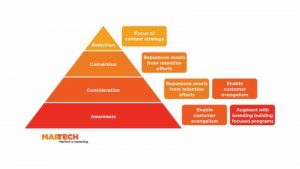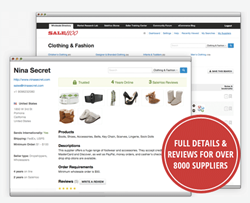Most of us, as consumers, have reached a point of digital saturation. Information and offers are everywhere, but credible, trustworthy resources seem more scarce than ever. We’re past the point of being skeptical – we actively distrust those we don’t know or have very good reason to believe.

This was brought to bear for me recently when I saw a presentation that had quite a bit of hype in the form of repeated double-your-money guarantees. What was being sold and by whom doesn’t really matter (at least not in this context). What is important is the fact that my internal scam caution triggered.
When that happens in the minds of your prospects, it’s most likely you’ve lost the opportunity forever. Accordingly, it’s important to present yourself as a trustworthy, reputable source of information, advice, or service … particularly if the people who will be viewing your content aren’t already familiar with you.
Luckily, there are some pretty easy steps you can take to communicate your credibility. Here are my fave five:
#1: A Detailed and Transparent “About” Page
An interesting feature of human nature is that we just don’t trust strangers. Experience has taught us to be wary of an unfamiliar individual who wants something we have (usually food or money). While it’s not going to replace a personalized introduction or a long-standing relationship, a detailed About page on your website is an excellent first step towards being less of a stranger.
Important About page elements… The first is a quick explanation of the basics: who you are, what you do, and where you’re located – presented in a way that pertains to them. Beyond that, your page should tell a story, why you do what you do for clients, milestones, goals. Really anything that may help your prospects identify with you. And finally, a few personal details go a long way towards making you more human than salesperson.
#2: Client Testimonials With Working Links
I’ve written about social proof recently, and its incredible power to subtly shift impressions. It’s much, much easier for people to trust you if they know that others (and especially others they know, or who are clearly like themselves) already do. That’s at the heart of any effective testimony or customer review.
Take that thinking a step farther, and enhance your own credibility by including working links to the source of every testimonial you receive. Providing a working link is the perfect way to show that not only do you have good relationships with other customers or colleagues, but that they are real people who are willing to put their stamp of approval on your work.
#3: Case Studies or Success Stories
A good case study can provide an equally-important source of credibility, but one that’s engaging for buyers in a different way. That’s because, even though they love hearing from other customers in their own words, people who are searching for solutions also want to know what you’ve been able to do for other clients.
A strong case study will introduce the challenge that was addressed, show the products or services that were employed, and give some measurable outcomes. With those elements in place (and possibly a testimonial at the end), your case study can go a long way towards showing visitors that they can trust you to deliver on your promises.
#4: Reviews From Real Customers
While testimonials and case studies will typically live on your own website, or possibly your marketing materials, the strongest reviews are usually housed somewhere other than your own website. That means you can’t control them directly, which is a good thing. Google reviews, LinkedIn, Yelp, Houzz and other review sites are an excellent place to gather them.
The whole point of getting reviews from real customers is that they are genuine and authentic. You might ask for them, but you aren’t sponsoring them or requesting that they be written in any particular way. For that reason, they carry more weight with prospects, who may otherwise be wary of working with you.
#5: Transparency
Don’t make visitors to your website wonder what you’ll do with their email address, why you are sponsoring a particular contest, or how your business earns its money. Some marketers hide from these topics in a way that’s almost pathological, and the result is that buyers who might have otherwise been interested in what they have to offer are nervous about even engaging them.
If you have an ethical and legitimate business model, prospects aren’t going to hold the marketing activities you employ against you. And if you aren’t doing things the right way, no amount of trickery is going to hide that from the public for very long. Being transparent in your dealings is a good way to inspire credibility, not to mention keep you out of trouble with the authorities and the buying public.
To make the most of these credibility-builders, you need to see them not as just new pieces of content on your website, but also as the cornerstones of a new relationship where trust can be built. In other words, don’t just focus on the bare necessities, go past the basics and give as much information and insight as you can.
Contrary to what some marketers might think, buyers won’t believe anything – or just anyone – they come across on the Internet. If you aren’t credible as an information provider, then all the content in the world won’t carry any weight with prospects.
Before I sign off, I have no doubt some are asking what to do if just starting out or introducing a new service/product and don’t have any testimonials, reviews or people who can speak up on their behalf? We all start out there of course, but you could look at a no obligation / no guarantee trial of your product/service, and request feedback that may become points to refine or maybe even those sought after testimonials. You could survey potential prospects on their need for what you are offering. You could preview it with a small number of individuals in a test market. Heck, you could even package it well, rehearse your presentation and pitch it old style as if you were on the Shark Tank TV show. Just make sure you have all your ducks in a row, and BELIEVE in yourself. Being confident when presenting will help those people believe in you. Good luck!
Business & Finance Articles on Business 2 Community
(36)








